Book Reviews by Genre: Adventure
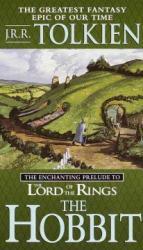
In The Hobbit, the prelude of The Lord of the Rings, the main character is a hobbit named Bilbo Baggins. He lived in a lovely hole carved into a hill and he lived a wonderful, luxurious life, with second breakfasts, and fun parties. That all changed when a mysterious wizard named Gandalf and a troupe of dwarves came into his house one morning. The dwarves told him of the horrible dragon named Smaug who had killed all the other dwarves and stolen their home. Now Bilbo must venture to the Misty Mountain, fighting goblins, evil wolves and spiders on the way to slay the dragon who terrorizes everything in it's path. Will he succeed or die on his perilous quest? Find out by reading this book. It is filled with creativity and cleverness. I would recommend it for anyone who liked Lord of the Rings. It is a great book.
Reviewer Grade: 8
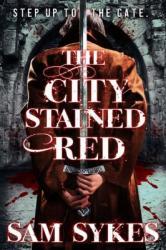
I’ve been following Sam Sykes on twitter for a while, and given my affinity for both well-crafted fantasy worlds and action-adventure stories, it was only a matter of time before I picked up a copy of The City Stained Red, the first book in Sam’s Bring Down Heaven series.
At almost 650 pages, The City Stained Red is a doorstopper of a book, but a fast, fun, vicious read. The book follows Lenk, an adventurer that some readers may recognize from Sykes’ previous series, The Aeon’s Gate Trilogy (though reading that series first is by no means a prerequisite for Bring Down Heaven). Lenk has finally decided that he’s done with killing, and wants to put aside his sword and pick up what he believes will be a normal life in the trade hub city of Cier’Djall. He and his friends, Denaos the thief, young wizard Dreadaeleon, khoshicht (Sykes’ clever take on elves) archer Kataria, healer/priestess Asper, and dragonman Gariath have killed scores of people and monsters. With the money owed to them for their services, they could happily retire from their violent lives. However, the man who owes them is not so easily found.
Cier’Djall is a massive, sprawling city, and the wealthy who rule over it have made their gold by selling silk produced by enormous spiders. However, the beautiful silk-draped spire that towers over the city leaves long shadows. In darker corners of the city, some of the poor are disappearing, and the ruling fashas may be to blame. Two rival churches seek to position their armies within the city, and tensions are running high as negotiations between them loom. Then, there’s the small matter of the local thieves guild and their ongoing conflict with a new but powerful cult that claims to have demons backing them. This is reality in the city where Lenk hopes to find Miron Evenhands, the priest at whose behest they have been doing what they do best. Cier’Djall is a bonfire piled high, drenched in oil, and awaiting a spark, and Lenk and his friends are unwittingly bringing lit torches through the gates.
The City Stained Red takes a page from A Song of Ice and Fire by presenting chapters from the perspectives of each member of Lenk’s band of adventurers. After arriving in Cier’Djall, they split up to try to located Miron, each using their unique skills and connections to make their way through the city. Denaos has connections from his previous life in the thieves guild, the Jackals. Dreadaeleon seeks the assistance of the Venarium, the wizard’s alliance. Asper, a follower of the same church as Miron, travels to the various temples in the city. Kataria finds herself in Shichttown, a slum where the non-humans try to live out of the way of the fiercely racist upper class. Gariath attempts to gather information from another dragonman who works as a bodyguard for one of the fashsas. Lenk is trying to cope with the fact that his pursuit of retirement may lose him the closest thing he’s ever known to a family. None of them are remotely ready for what they find.
After a footwar between the Jackals and the Khovura cult spills from the back alleys into the streets, every faction with an interest in controlling the silk trade comes out of their corners swinging, and Lenk and company can do little more than hope to survive.
I absolutely loved this book. Sykes blends dark humor and trope deconstruction beautifully. I’m already reading the sequel, The Mortal Tally, because I couldn’t wait to see what happens to these folks next. Reading about these characters is like watching my college Dungeons and Dragons group in action. There’s violence and bloodshed, but also fervent emotion. It’s a wonderful thing.
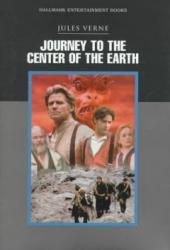
Journey To The Center Of The Earth is a wonderful book. In it, the main characters Axel and his uncle find a mysterious message in a book saying that if you descend into the crater of Sneffels before the kalends of July, you will find a passage to the center of the earth. Putting aside all hesitations, they begin their journey and explore the depths of the earth.
Will their journey succeed or will they die in vain? Find out by reading this book. You will not be disappointed! The only bad part is that it's a bit unrealistic. Overall, this is a great book.
Reviewer Grade: 8
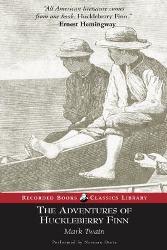
Actual Rating 4.5
This book leads right in connecting to The Adventure of Tom Sawyer. Huck was one of Tom's friends and the story is now based around him. He soon was adopted with many things coming along after with a man named Jim. There is a lot of action and things that can really trigger the emotions. Symbolism is a really good thing to look out for in this novel.
Reviewer Grade: 12
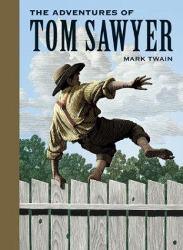
Actual Rating 4.5
The Adventures of Tom Sawyer, by Mark Twain, is a pretty good novel. The main character of course being Tom goes through a series of interesting things. He witnesses things he probably shouldn't have and spends a lot of time with his small group of friends. He faces a lot of adventures and risky things throughout. This book is good especially if you read The Adventures of Huckleberry Finn after.
Reviewer Grade: 12
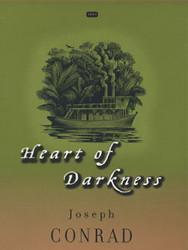
Actual Rating: 2.5
Heart of Darkness is a classic book by Joseph Conrad that is deep, heavy, and somewhat disturbing. I probably would have given this book more stars if it were not for the immense amounts of dialogue and a maddeningly complex storyline. I did find what the book was actually about interesting, however, trying to follow along with what was happening with all the detailing and talking practically made my brain come out my ears. So, in spite of the complexity, I will sum it up as best as I can. Here’s basically what happens: The book begins with the narrator (presumably an unnamed sailor), along with several others, listening to a man named Marlow tell a story on board the Nellie, a sailing vessel. Marlow tells them a story about when he was a young man working a job as an ivory transporter on the Congo. Through an ivory trading expedition, he develops an interest in a man named Kurtz, who seems to have a godlike power over the natives. Through talking to several others, he discovers three main things about the mysterious Kurtz: that he is in poor health, that he has tons of ivory, and, according to one source, that he may be trying to steal the manager’s job. Marlow and some of Kurtz’s acquaintances then take a boat to bring relief to the man, but are attacked by the natives. They later learn that the natives attacked them because they were worried that Kurtz would be taken away from them. I will not give away any more as it may ruin the story, but it is a somewhat tragic one. I would recommend this book to people who like books that are deep and thought provoking, and can comprehend complex plots and conversations.
Reviewer Grade: 7
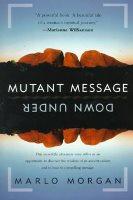
This is a fascinating and controversial tale of one woman’s experience in Australia traveling with an Aboriginal tribe. She leaves the hotel one morning to attend a meeting with the tribe and ends up on a three-month trek through the outback. Whether the account is 100% true or not, the message can be relevant and provocative: that our society is pulling us away from our true nature and our innate connection with the environment. I really enjoyed the different lessons from the Aboriginal tribe and how perceiving our society in a totally different light can be very beneficial. This is one of the books I have read that stays with me long after I have read it and that I continually ponder, so I would definitely recommend this to anyone looking for a thought-provoking read.
Reviewer Grade: 12
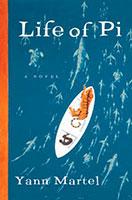
Life Of Pi is one of the most amazing books I've ever read!
A book full of mysteries, magic, faith, love and adventures. It is a book about the survival of Pi Patel, the protagonist with a Bengal tiger named Richard Parker. My favorite part of the book was to understand the love-hate relationship between Pi and the tiger. There are many learning outcomes from this book which include faith, love, hope, optimism and many more!